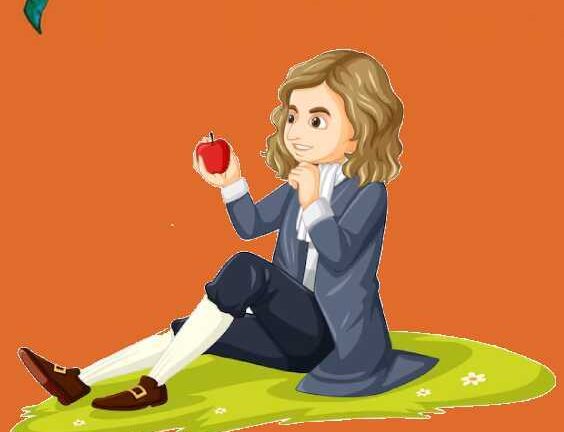Why do many people consider Isaac Newton One Of the Greatest Scientists Who Ever Lived? because he changed how we understand the world. Born in 1643 in England, Newton’s discoveries in physics, math, and light still shape science today.
Early Life and Education
Isaac Newton was born on January 4, 1643, in a small village in England. His father, also named Isaac, died before he was born. Newton’s mother remarried, but Newton didn’t like his stepfather and lived with his grandmother instead.
Newton went to school when he was 12, but at 17, his mother took him out of school to become a farmer. Newton didn’t like farming, so his mother let him go back to school, where he became the top student.
University Life
At 18, Newton went to Cambridge University to study law, but his interest in math and science grew stronger. Although the university still taught the old ideas from Ancient Greece, Newton chose to study newer works by Galileo, Kepler, and others. By his early 20s, he was already thinking about big scientific questions, such as gravity and the nature of light.
Newton’s Big Discoveries
By age 22, Newton made his first major discovery in math—the binomial theorem. Soon after, he started working on three main areas that would make him famous:
- Calculus: Newton invented a type of math called calculus, which helps explain changes in the world, like how things move or grow.
- Gravity: Newton discovered the law of gravity, explaining why things fall to the ground and why planets stay in orbit around the sun.
- Light and Optics: Newton showed that white light is made up of all the colors of the rainbow. He also built the first reflecting telescope, which used mirrors instead of lenses.
Universal Gravitation and the Famous Apple
The story of Newton’s apple is true. Seeing an apple fall from a tree made Newton wonder why things fall downward. He figured out that the same force that pulls the apple to the ground also keeps the moon in orbit around the Earth. This idea became his Law of Universal Gravitation, which says that everything in the universe attracts everything else.
Newton’s Laws of Motion
Newton also created the Three Laws of Motion:
- An object won’t move unless a force acts on it.
- Force equals mass times acceleration (F = ma).
- For every action, there is an equal and opposite reaction.
These laws explain how things move and are still used today in everything from designing cars to launching rockets.
Quick Facts About Isaac Newton
- On 4 January 1643, Isaac Newton was born in England.
- At 18, Newton went to Cambridge University to study law.
- By age 22, Newton discovers the binomial theorem.
- In 1696, Newton took on the role of Warden of the Royal Mint.
- By 1700, he became Master of the Mint, leaving Cambridge for London.
- In 1703, Newton was elected President of the Royal Society.
- In 1705, he was knighted, earning the title Sir Isaac Newton.
- Isaac Newton passed away on March 31, 1727, at 84.
- Isaac Newton never married and had no children.
- He was laid to rest in Westminster Abbey, London.
Why Do Many People Consider Isaac Newton One Of The Greatest Scientists Who Ever Lived?
Newton died in 1727, but his ideas continue to influence science today. His discoveries changed how we see the world from gravity to motion to calculus. That’s why Isaac Newton is still remembered as one of the greatest scientists who ever lived.
Famous Quotes About Isaac Newton From Great Scientists
Here are more famous quotes about Isaac Newton from notable scientists and thinkers:
- Alexander Pope, Poet:
“Nature and Nature’s laws lay hid in night: God said, Let Newton be! and all was light.” - Joseph-Louis Lagrange, Mathematician:
“Newton was the greatest genius that ever existed, and the most fortunate, for we cannot find more than once a system of the world to establish.” - John Maynard Keynes, Economist:
“Newton was not the first of the age of reason: he was the last of the magicians.” - Edmond Halley, Astronomer:
“Nearer the gods no mortal may approach.” - Carl Sagan, Astronomer:
“If you wish to make an apple pie from scratch, you must first invent the universe.” (a nod to Newton’s apple story) - Richard Feynman, Physicist:
“If I have seen further, it is by standing on the shoulders of giants.” (Newton himself quoted this, but it has become a hallmark of how others see him as the ultimate ‘giant’ in science) - Isaac Barrow, Mathematician:
“Mr. Newton, a fellow of our College, and very young, being but the second year master of arts; but of an extraordinary genius and proficiency.” - Albert Einstein, Theoretical Physicist:
“Nature to Newton was an open book, whose letters he could read without effort.

